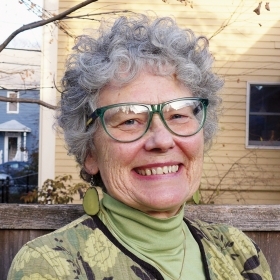In December 1997, Jane Wolf Frances ’68 flew from Los Angeles to New York City to visit her elderly parents. What she found shook her to the core. Her parents looked disheveled, ill, and exhausted. Her mother was confused, and their apartment was dirty and unkempt. Thus, Frances embarked on a 10-year journey as a caregiver to her parents. She acknowledges that although her parents were in their mid-80s at the time, she had never contemplated their potential decline. Yet she embraced her new role with gusto and inspiring devotion.
Frances is in good company. According to the Alzheimer’s Association, more than 16.2 million Americans provide unpaid care for loved ones with dementia, supplying an estimated 18.5 billion hours of care in 2017.
Sometimes an author cannot help but write a book—the book seems to birth itself. I recognize this phenomenon from my own experience. I had a very traumatic 18-month period in 2013–14, in which both my parents died, my mother-in-law died, and my husband was diagnosed with Parkinson’s disease at the age of 55. Based on my personal and professional experience, I wrote Aging with a Plan: How a Little Thought Today Can Vastly Improve Your Tomorrow, a guide to preparing for the financial, social, legal, medical, and other challenges of aging and caregiving.
Parenting Our Parents: Transforming the Challenge into a Journey of Love is such a book, as well. Frances hones in on the transformative experience of becoming your parents’ parent when they can no longer care for themselves. She wrote the book because she found no other like it when she encountered her parents’ initial crisis. She has produced a work that is absorbing, encouraging, and an outstanding resource for those who confront similar eldercare challenges.
Trained as a lawyer and a psychotherapist, Frances explores both the practical and the emotional aspects of caring for parents. Cleverly, she coined her own terminology for parenting our parents: “POParenting,” “doing POP,” and the “POPcycle.” She divides the book into “My Story” and “Your Story.” The former sections constitute compelling autobiography, and the latter provide useful advice for readers. Interspersed are sections entitled “Their Story,” in which she imagines her parents’ inner lives and tries to relate events from their perspectives.
Among the topics the book covers are:
- Going through your parents’ paperwork;
- Engaging in caregiving long-distance;
- Moving your parents to your area when long-distance caregiving is no longer viable;
- Finding the right long-term care arrangement and adjusting it when your parents’ needs change;
- Managing medical crises, such as geriatric depression, falls, pneumonia, and dementia;
- Handling unexpected setbacks;
- Developing your own emotional defenses and strategies;
- Learning to underreact so that charged situations do not escalate;
- Finding adequate support systems, especially if you are an only child or the sole decision-maker (as Frances was);
- Managing hospice;
- Mourning your parents’ deaths and celebrating their lives.
Although Frances mentions financial concerns a couple of times, the Wolf family had the financial resources to obtain first-rate care at the facilities of their choice and to hire as much extra help as needed. Those with more limited budgets may have different experiences and face other roadblocks.
An aphorism I remember from the Hebrew Bible is “from bitter there came sweet.” Parenting Our Parents exemplifies this concept. Jane Wolf Frances has written a thoughtful, touching, and illuminating book that will help anyone who is fortunate enough to read it.
Hoffman is Edgar A. Hahn Professor of Law, professor of bioethics, and co-director of the Law-Medicine Center at Case Western Reserve University in Cleveland.








We ask that those who engage in Wellesley magazine's online community act with honesty, integrity, and respect. (Remember the honor code, alums?) We reserve the right to remove comments by impersonators or comments that are not civil and relevant to the subject at hand. By posting here, you are permitting Wellesley magazine to edit and republish your comment in all media. Please remember that all posts are public.